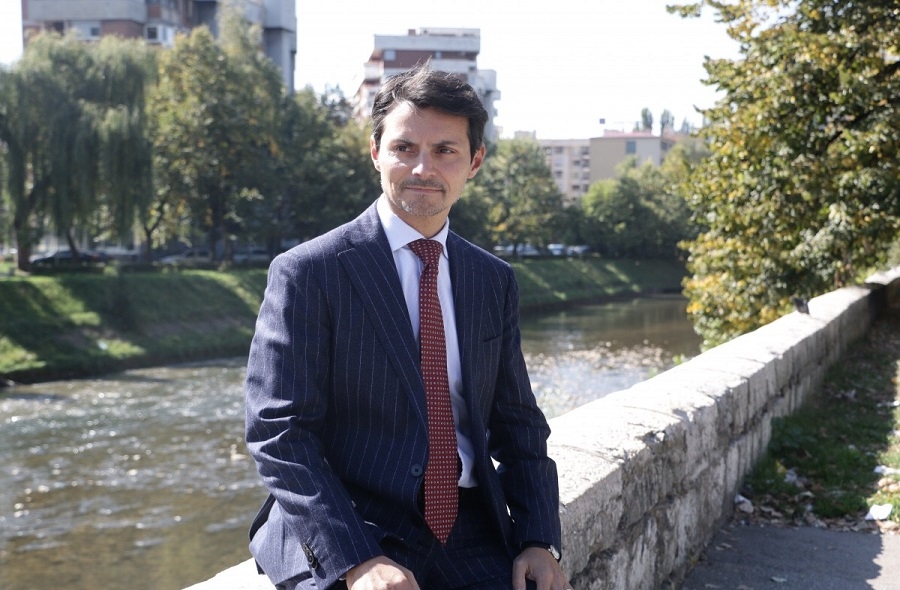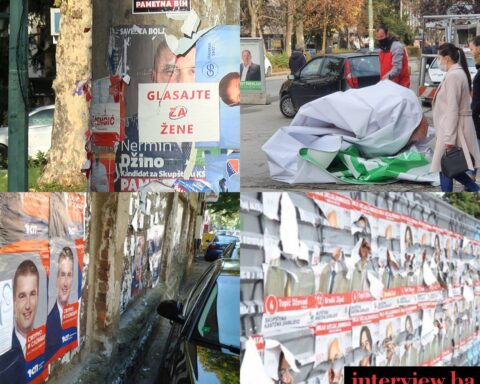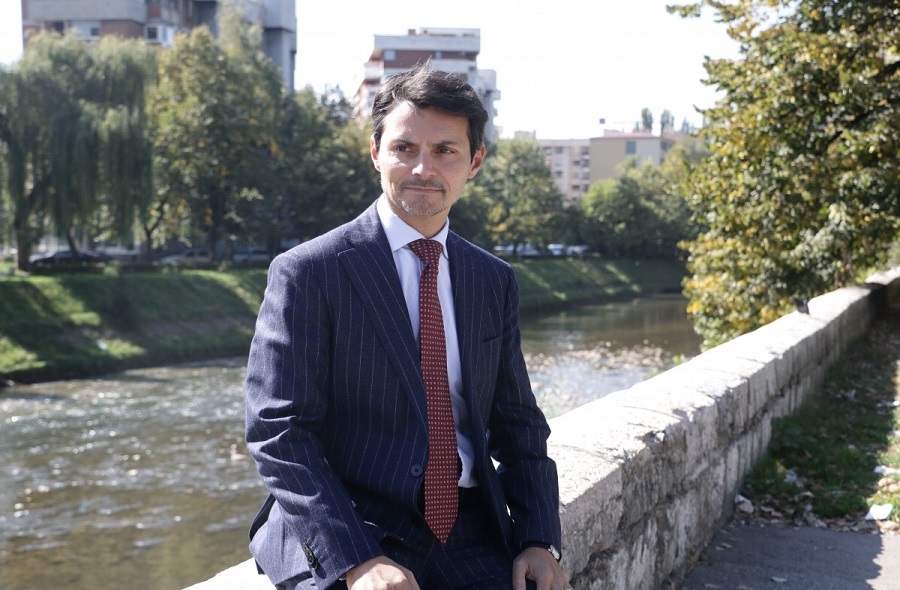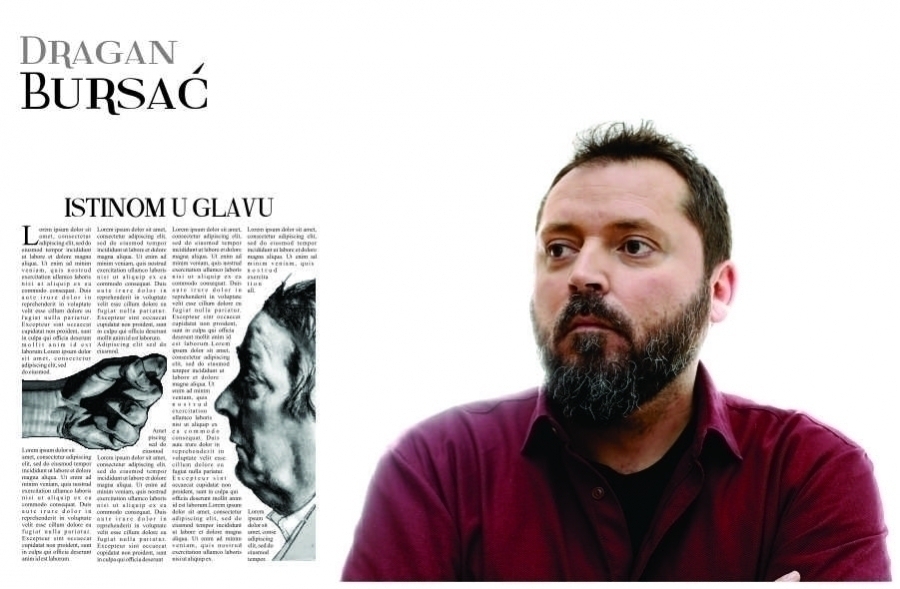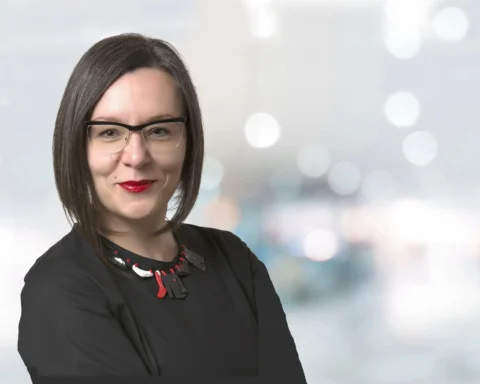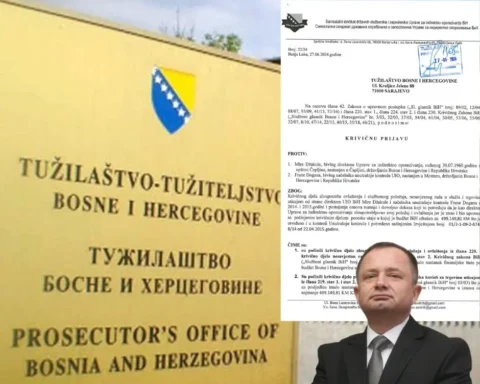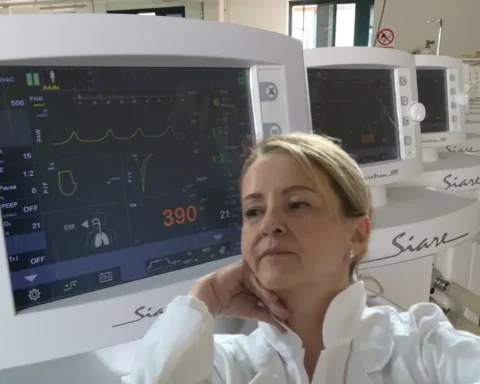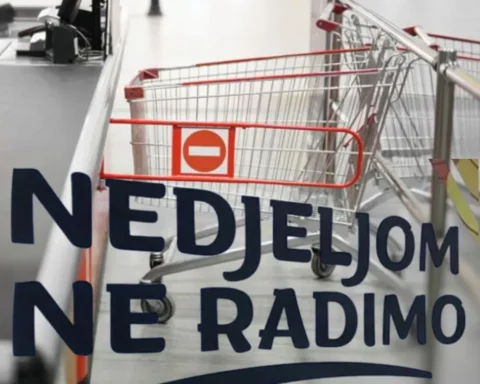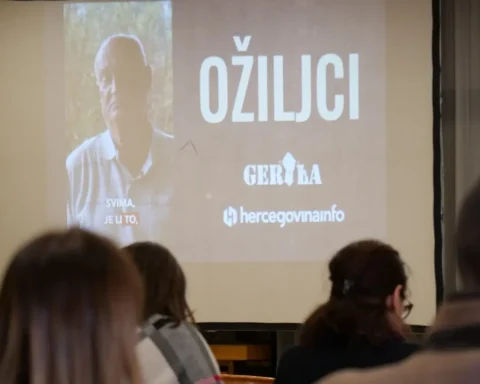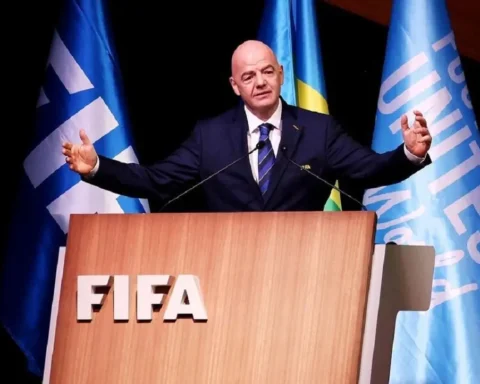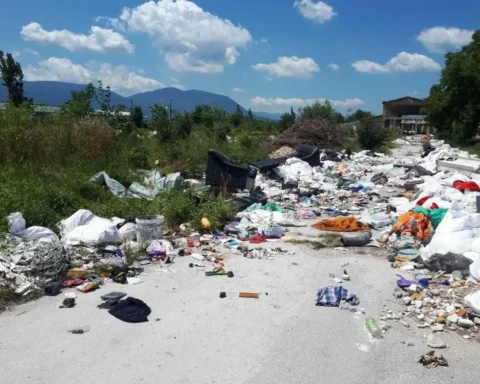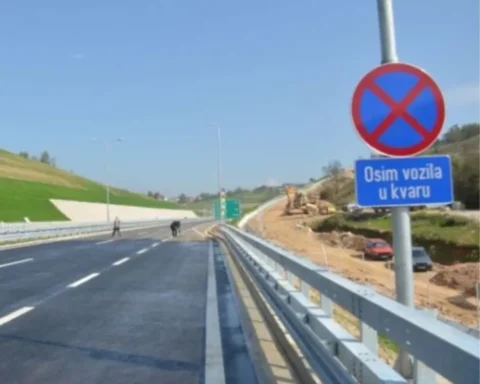What is the present and what should be the future for BH society, who are the strongest and who are the weakest links in the society fabrics, how to stop the brain drain from BiH and how to liberate the potential… are just some of the questions which the eight Italian ambassador in BiH, HE Nicola Minasi, addressed in this open and enlightening interview for our portal.
I WILL MARCH IN PRIDE PARADE: “Since this country is based on differences, it is quite important that the acceptance of different ideas, different orientations becomes something not be afraid of. Differences do not reduce our rights or our strengths. So I’ll participate in support of a democratic initiative and out of respect for human rights”.
INTERVIEW.BA: One day after the meeting of the three members of Bosnia’s multi-ethnic presidency on which they failed to break a deadlock on forming a new government amid divisions over the country’s bid to join NATO, you had a meeting with one of the presidency members, Mr Milorad Dodik. I presume the country bid to join NATO was the main topic of your discussion?
MINASI: The purpose of this meeting was to discuss current issues of Bosnia and Herzegovina and to hear all views, this is a normal political dynamic. For example, on the same day I also had a meeting with the president of PDP, Mr Borenović. With President Dodik one main point was the issue of government formation and which ways are available to find a consensus. We had a frank discussion.
INTERVIEW.BA: Do you find conversation with him too frank?
MINASI: In politics it is important to have real discussions on issues of merit, on content. On this issue of government formation in BiH it is up to the leaders of political parties, who have signed the agreement on August 5th, to find a way to reach consensus and give a government to the country. Also the opposition is called to react responsibly and fulfill its role in the interest of the country. Sometimes it is important to step back from the public scene to find an understanding. I think this is what is needed from all sides in this case.
INTERVIEW: Did Mr Dodik confirm again his opinion about ANP and NATO? If I can quote him correctly he said: “as long as I am here I am against it. We will go in NATO and ANP only if Serbia went.”
MINASI: Cooperation with NATO is something that BiH has already opted for and a lot of work has been done on the operational aspects in the past, without major problems. The question is how to define the type of interaction and this is something that can be the object of an agreement, without any prejudice on the future, as it does not imply a decision on future membership. What matters is that all sides set out their views, find the common points and work for a solution. I believe this discussion is important and that an understanding is possible through direct talks, so I would not dramatize this issue.
INTERVIEW.BA: What Mr Borenović said about these issues? Is he for NATO or not?
MINASI: We had an interesting conversation about the challenges for the country and he discussed about his party’s position on the regional situation and type of cooperation with NATO. He encouraged a general debate on these issues and said he would promote it at various levels.
INTERVIEW.BA: How do you see the role of other two members of the presidency in this failed chance to unlock the country and form a government and reach agreement?
MINASI: This is really a matter of collective leadership, especially in this country with the arrangement that exists through the Dayton Agreement. So this is not about one winning and the other losing, it is about winning or losing all together, in the interest of all citizens, because we are talking about government formation. So, the most important thing, regardless of the public attention and public statements – I would say there is even too much attention on what everybody says every day, every hour, which does not always help – is that they keep discussing. What matters is that there is a constructive approach towards finding a common solution that is mutually accepted.
INTERVIEW.BA: Mr Minasi you are ambassador in BiH from 2017. Do you see any positive changes in this country? What is your opinion about the EU accession process?
MINASI: First of all, I am impressed by the people of this country, by…
INTERVIEW: How we are patient?
MINASI: (laugh) Yes, by the patience but I am also impressed by the energy of people and for example by the number of artists, many of which are known worldwide. I also meet a lot of business people who are very successful and recognized abroad. It looks like the many problems that people have endured have also produced a world class of individuals, that can compete successfully anywhere. The point is how to deploy all these skills for the improvement of the country. A lot of potential needs to be liberated and maybe this could best happen talking also about reconciliation, especially among young people. But reconciliation as a topic doesn’t come to the political sphere. I think this is one of the main starting points, and also the EU opinion is very clear on this. It is also up to the politicians to honor these requests for improvement and give more confidence to the public that the quality of political and social life can be improved. It is important to really liberate the potential of the country.
INTERVIEW.BA: You mentioned that artists are one of the strongest point of this country. But this is not common opinion here especially if the artist or intellectual is not part of the system, like Martina Mlinarević Sopta, who is faced on a daily basis with nationalistic attacks.
MINASI: Definitely Martina Mlinarević Sopta is one of the individuals that I met who I found most interesting. Criticism of public figures exists everywhere in the world, but I find very grave when debates take on a nationalistic tone here. This goes really against the principles of culture, media freedom and free discussion. Everybody has the right to their own opinion but must also respect opinions of other people. There cannot be room for promoting hate.
Freedom of speech is one thing, but threats and incitation to violence are intolerable and illegal. In fact they should be prosecuted by the judiciary.
INTERVIEW.BA: It is not that only free thinker and artists face with attacks from the oppressive members of the society. What about minorities? How will bh. society react on announced Pride Parade that will be held in Sarajevo on September 8th? Will you march also?
MINASI: Freedom of association is a human right and human rights exist for everybody, without any discrimination based on race, religion or sex, even if we do not share other people’s opinions or lifestyles. So I’ll participate in support of a democratic initiative and out of respect for human rights. I also believe this initiative is special in this country, because every debate on sexuality is also a debate about accepting differences. Since this country is based on differences, it is quite important that the acceptance of different ideas, different orientations becomes something not be afraid of. Differences do not reduce our rights or our strengths.
INTERVIEW.BA: BiH as a member of European union is perceived as a last possibility for this country to go further, to fight successfully against corruption. We still has a long way to go and with Brexit around the corner it is reasonable to fear for the stability of EU on the end of this process. What is your opinion about EU stability?
MINASI: One thing is sure – membership in the EU is not a magic solution in itself, it is the culmination of a process. During this process the country needs to fight against corruption, to adopt better public standards, better administration and a more open economy. The process in itself is the most important thing, because already now you can start enjoying the benefits of EU standards by enforcing appropriate legislation. For example by aligning the regulations to the common EU market, which would make it easier to export products, to respect environmental regulations, to make air cleaner, to fight pollution and corruption. In the EU there is a solid base of regulations that will stay there anyway, regardless of the transformations in the EU space. So Bosnia and Herzegovina can only benefit from engaging in this process. But for that you need a government…
INTERVIEW.BA: How would you describe todays relationship between Italy and BiH?
Italy is either the first or the second trading partner of all countries in the Western Balkans and Croatia and the second one in BiH. There is a spontaneous, natural interest in having the whole Western Balkans in the EU and actually to encourage unification of the economic space. This can only bring advantages to all the countries and this will also generate better investments from the EU and also from outside of EU. The business environment in Italy and Bosnia is kind of similar, especially for small companies for which it is easier to invest. The amazing thing is that so many small companies from Italy are investing here and in connection with bigger companies in Italy, which also improved the bilateral trade and this is creating lots of jobs.
INTERVIEW.BA: Do you have some numbers about jobs?
MINASI: We calculated that 12.000 people from Bosnia and Herzegovina work either for the Italian companies or thanks to the Italian companies. And actually we want to connect these also with schools, to allow the students to get the training in the country, to find jobs with these companies here without having to go abroad.
INTERVIEW.BA: Is this the receipt for stopping the brain drain from BiH?
MINASI: For those who live abroad, the important thing is to come back with new ideas, with new determination. If most people from the diaspora can live peacefully and effectively together abroad why do they not do the same here? Yes, globalization takes people abroad but important thing is that people also come back and invest. The answer to brain drain should be brain circulation: to have people who after studying come back here, invest and help the change. This is possible. I firmly believe in this. I would like to witness steps forward to this, towards this direction in liberating the potential of the country. And Italy definitely will be a partner in this.
Intervju je dostupan i na bosanskom jeziku: https://interview.ba/interview/item/23446-nicola-minasi-zajednicki-interes-politicara-treba-da-bude-oslobadanje-potencijala-drzave

